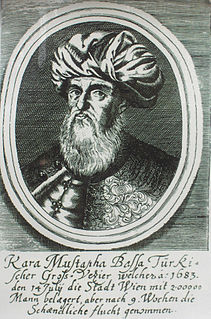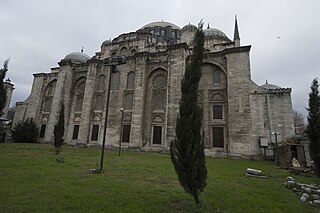 W
WCostea Bucioc or Coste Băcioc was a Moldavian statesman, commander of the military forces, and father-in-law of Prince Lupu (Vasile) Coci. He began his political career in the 1580s, emerging in the late 1590s as an ally of the Movilești dynasty, with then-Prince Ieremia Movilă advancing him to the post of Clucer. From 1601, he was Constantin Movilă's Paharnic, receiving from him the estate of Deleni and other villages around Hârlău, which formed part of a Bucioc domain that also extended into Bukovina and Bessarabia. Together with the Movilești, he became one of the great landowners of his generation, and one of the first Moldavian boyars known to have owned serfs. Some of his assets went into refurbishing Râșca Monastery, of which he was patron, or ktitor.
 W
WDionysios Philosophos or Skylosophos, "the Dog-Philosopher" or "Dogwise" ("skylosophist"), as called by his rivals, was a Greek Orthodox bishop who led two farmer revolts against the Ottoman Empire, in Thessaly (1600) and Ioannina (1611), with Spanish aid.
 W
WYuri Khmelnytsky (1641–1685), younger son of the famous Ukrainian Hetman Bohdan Khmelnytsky and brother of Tymofiy Khmelnytsky, was a Zaporozhian Cossack political and military leader. Although he spent half of his adult life as a monk, he also was Hetman of Ukraine on several occasions — in 1659-1660 and 1678–1681 and starost of Hadiach. For background see The Ruin.
 W
WCyril Lucaris or Loukaris, born Constantine Lucaris, was a Greek prelate and theologian, and a native of Candia, Crete. He later became the Greek Patriarch of Alexandria as Cyril III and Ecumenical Patriarch of Constantinople as Cyril I. Calvinist contemporaries, and some modern Calvinist writers as well, have claimed that he strove for a reform of the Eastern Orthodox Church along Protestant, Calvinist lines. Attempts to bring Calvinism into the Orthodox Church were rejected, and Cyril's actions, motivations, and specific viewpoints remain a matter of debate among scholars. However, the Orthodox Church recognizes him as a hieromartyr and defender of the Orthodox faith against both the Jesuit Catholics and Calvinist Protestants. The official glorification of Cyril Loukaris took place by decision of the Holy Synod of the Patriarchate of Alexandria on 6 October 2009, and his memory is commemorated on June 27.
 W
WKara Musa Pasha was an Ottoman soldier and statesman of Bosnian origin who was named grand vizier by Sultan Ibrahim I 16 September 1647 after Nevesinli Salih Pasha's execution, holding the office for only five days until 21 September. He also held the office of Kapudan Pasha in 1647.
 W
WMerzifonlu Kara Mustafa Pasha was an Ottoman nobleman, military figure and Grand Vizier of Albanian origin, who was a central character in the Ottoman Empire's last attempts at expansion into both Central and Eastern Europe.
 W
WNefʿī (نفعى) was the pen name of an Ottoman Turkish poet and satirist whose real name was ʿÖmer (عمر).
 W
WSarı Süleyman Paşa was an Albanian Ottoman grand vizier of the Ottoman Empire from 18 November 1685 to 18 September 1687. He was executed after the defeat of the Ottoman forces in the Battle of Mohács (1687).
 W
WŞehzade Mahmud was an Ottoman prince, the son of Sultan Mehmed III and Halime Sultan. He was the grandson of Sultan Murad III and Safiye Sultan, the half-brother of the future sultan Ahmed I and the brother of Mustafa I.